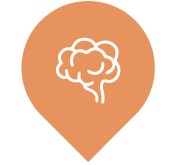MArch study trip: Amsterdam, Rotterdam and Utrecht
Key Information
Information
Application Deadline: 20/10/25 at 9:00 am
Opportunity type: Academic-led trips
Faculty: Technology, Arts and Culture
Ref: 10009761
Dates
Departure Date: 19/01/26
Return Date: 26/01/26
Student cost
£300: This is your estimated cost for travel and accommodation after deducting the £200 DMU Global bursary.
What’s not included: UK transfers, in-country travel (£40) activities, visits, food, drink, and visa (if applicable).
Booking
Accommodation: Shared rooms will be provided in a hostel/hotel
Travel: Travel booked by DMU (students travel as a group)
Contact
General Enquiries: Global Mobility Office - dmuglobal@dmu.ac.uk
Trip Lead: Ben Cowd - bencowd@dmu.ac.uk
How to pay
Payment details: If offered a place, students will receive further information and will be asked to pay the student cost listed above. As mentioned, the DMU Global bursary has already been deducted from this.
Your application
Important: The use of generative AI tools such as ChatGPT, Gemini, Copilot and others to write or generate content for your application is not permitted. DMU Global reserves the right to reject applications that have been created using these tools. To learn more, visit our application process page.
Trip Profile
Independence
Independence
Trip price
Trip price
Trip duration
Trip duration
Eligibility
MArch Architecture (K10047 & K10048) students are eligible to apply for this opportunity. There is a maximum of 30 places available, with a minimum of 15 participants required for this opportunity to take place. Students are recommended to check the eligibility criteria before applying.
About
Trip description
This postgraduate field trip offers MArch Architecture students the opportunity to critically engage with a diverse and ambitious range of housing and public architecture in Amsterdam, Utrecht, and Rotterdam. The trip is focused on studying innovative and socially responsive housing models—historic and contemporary—that respond to pressing urban issues, including affordability, sustainability, and density.
In Amsterdam, students will undertake guided visits to major early 20th-century social housing projects including Het Schip (Michel de Klerk) and De Dageraad (de Klerk & Piet Kramer), both celebrated for their expressive Amsterdam School architecture and integration of craft, community, and ideology. More recent housing schemes include Borneo-Sporenburg (West 8), an internationally recognised model of high-density low-rise living, and Sluishuis (BIG + Barcode Architects), a floating housing project combining environmental performance with social ambition. Additional visits will include cooperative housing experiments and emerging infill schemes.
In Utrecht, the group will visit the Rietveld Schröder House (Gerrit Rietveld), a De Stijl masterpiece challenging conventional domestic boundaries, and Enric Miralles’ Utrecht Town Hall, which demonstrates layered spatial complexity and civic identity.
In Rotterdam, students will engage with a range of innovative housing typologies, including Kop Dakpark (INBO + h3o) and Cube Houses (Piet Blom), alongside public and cultural architecture such as the Kunsthal Rotterdam (Rem Koolhaas). The programme will also include walking tours, and potential engagements with local architects and planners.
An additional £40 will be collected from students to cover the cost of rail travel between Amsterdam and Rotterdam (return) and Amsterdam and Utrecht (return).
Learning objectives
The primary objective of this field trip is to immerse MArch Architecture students in a dynamic international context where they can critically explore alternative approaches to housing, urbanism, and architectural practice. The Netherlands (particularly cities like Amsterdam, Utrecht, and Rotterdam) provides a unique opportunity to study how innovative, low-cost, and socially responsive housing typologies are being implemented in response to contemporary urban challenges. Key objectives include:
Ultimately, the trip aims to inspire students to think ambitiously and responsibly about their own design practice, and to draw meaningful lessons from the Dutch context that can inform more equitable, creative, and sustainable responses to housing in the UK.
Skill development
This opportunity has been designed to help develop the following DMU Graduate Attributes:

Agility

Confidence

Critical Thinking

Organisational
Cultural activities
Outside of the structured academic programme, students will have ample opportunity to explore the cultural richness of Amsterdam, Utrecht, and Rotterdam independently. Each city offers a unique urban experience, with a wealth of museums, public spaces, and architectural landmarks to discover at their own pace.
In Amsterdam, students may choose to visit the Stedelijk Museum, Rijksmuseum, or EYE Filmmuseum, all located within walkable or bikeable distances and offering valuable perspectives on design, modern art, and visual culture. Exploring the canal belt, historic Jordaan district, or the redeveloped docklands provides informal but valuable architectural insight.
In Utrecht, students can take time to wander the charming medieval centre or visit local cafés and bookshops.
In Rotterdam, students might independently visit the Het Nieuwe Instituut, home to one of Europe’s leading architecture archives, or take in the city’s bold post-war skyline from a rooftop bar or water taxi. Independent sketching, photography, or exploring contemporary urban projects such as the Luchtsingel or the Timmerhuis are all encouraged.
These cultural activities are intended to inspire reflection, curiosity, and personal connection with the built environment beyond the formal study programme.
Visa information
Due to various external factors and an unprecedented demand for international travel, there are significant delays in visa processing, as well as very limited availability of application appointment slots for some countries and embassies.
We recommend that you take all appropriate steps to secure a visa as soon as practically possible, and to notify DMU Global if you face any issues. It is your responsibility to meet the entry requirements of the country you are travelling to. Failing to do so may mean that you’re liable for the costs incurred to the university (including repayment of the DMU Global bursary). Visit our visa information page to learn more.